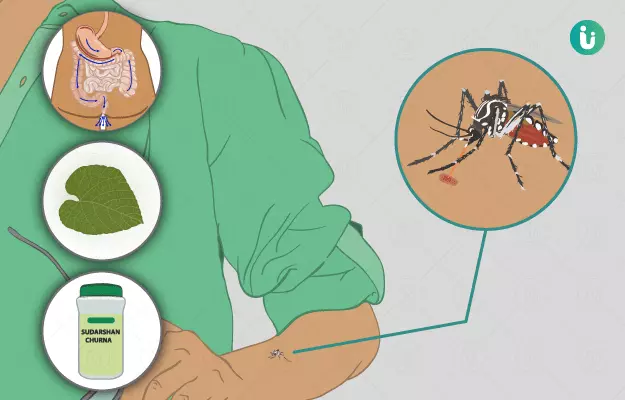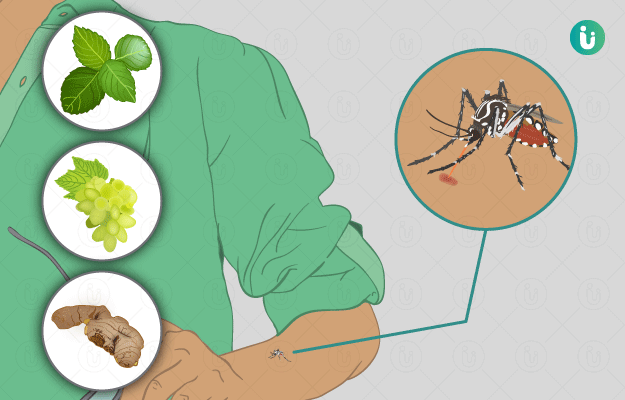Malaria is a mosquito-borne disease caused by a parasite named Plasmodium. Fever and chills are the most common symptoms of malaria, however, if not treated on time, this condition may cause morbidity.
According to Ayurveda, the major clinical signs and symptoms of malaria, i.e., fevers and chills, are associated with vishama jwara (a type of fever). These type of fevers are either remittent or intermittent.
Ayurveda uses herbs like guduchi (heart-leaved moonseed) and nimba (neem) to treat malaria. These bitter-tasting herbs bring back the balance in vitiated doshas of the body. Ayurvedic treatment procedures like virechana (purgation) and basti (enema) help provide relief from the fevers that occur during malaria. The Ayurvedic formulations of Ayush 64, sudarshana churna, amrutarishta and guduchyadi kwatha are helpful in relieving malaria symptoms.
Using topical insect repellents, taking proper precautions while travelling to malaria-endemic regions, wearing long-sleeved clothing are some of the preventive measures that are effective against malaria.











































